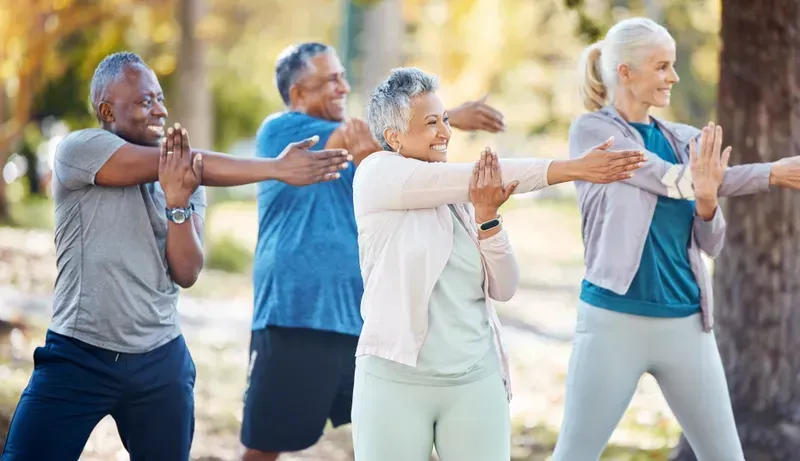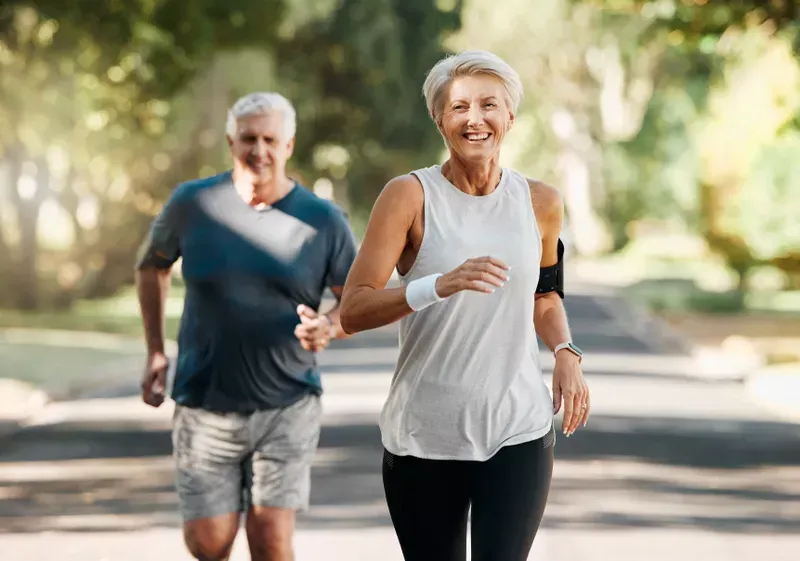BLOG
Exploring the Connection Between Physical Activity and Brain Health
Maintaining brain health is a critical concern, especially as individuals age. For seniors, cognitive well-being often determines overall quality of life. Emerging research emphasizes the profound influence of physical activity on cognitive function. Understanding this connection can empower seniors and caregivers to adopt routines that support lifelong brain health.
Physical activity isn't just about staying fit; it's a cornerstone of cognitive resilience. Regular exercise positively impacts memory, attention, and mood. Incorporating physical activity into daily life can significantly benefit seniors. This article examines the latest research and practical strategies for fostering brain health through movement.
The Role of Aerobic Exercise in Supporting Brain Health
Aerobic exercise is one of the most effective activities for maintaining brain health. Studies reveal that it improves blood flow to the brain, enhancing cognitive function. Activities like walking, swimming, and cycling help reduce the risk of cognitive decline. Even moderate aerobic exercise can yield substantial benefits for seniors.
Regular aerobic exercise also stimulates the growth of new neurons, a process called neurogenesis. This promotes better memory retention and problem-solving skills. Furthermore, seniors engaging in aerobic activities often report improved focus and emotional stability. Caregivers can encourage consistent routines to make these exercises more accessible.

Beyond cognitive benefits, aerobic exercise helps manage chronic conditions like hypertension and diabetes. If left unmanaged, these health issues can negatively impact brain function. Seniors should prioritize exercises tailored to their physical abilities. Consulting with healthcare professionals ensures that routines are safe and effective.
Moreover, adopting aerobic activities fosters a sense of independence and vitality. Seniors often experience improved energy levels and a sense of accomplishment. Incorporating these exercises into group settings can also provide valuable social engagement. This holistic approach supports both mental and emotional well-being.
Strength Training: Building Cognitive and Physical Resilience
Strength training is another powerful tool for enhancing brain health. It improves muscle mass while boosting cognitive functions like attention and planning. Activities like resistance band exercises or light weightlifting are particularly suitable for seniors. Regular sessions can also help prevent falls, a significant risk for older adults.
Strength training also influences the brain by regulating stress hormones like cortisol. Lower cortisol levels contribute to better mood and reduced anxiety. This hormonal balance plays a vital role in maintaining long-term cognitive function. Seniors can start with simple, guided exercises to build confidence and consistency.
In addition, strength training can also improve sleep quality, an essential factor in brain health. Poor sleep impairs memory and learning, particularly in older adults. Combining strength exercises with good sleep hygiene creates a positive feedback loop for overall wellness. Caregivers can support seniors in developing sustainable exercise habits.
Group strength training classes provide physical and social benefits. They encourage seniors to stay active while fostering community connections. Social interaction is crucial for brain health and reduces the risk of loneliness and depression. Assisted living communities often offer tailored programs to meet these needs.
Flexibility and Balance Exercises for Cognitive Stability
Flexibility and balance exercises are vital for overall health and cognitive stability. Practices like yoga and tai chi enhance physical coordination and mental focus. These exercises improve the brain’s ability to adapt to new information, a concept known as neuroplasticity. Seniors can benefit significantly from these low-impact activities.
Balance exercises help reduce the risk of falls, a leading cause of brain injuries in older adults. Improved stability enhances confidence in daily movements. Seniors can integrate simple routines, such as standing on one foot or using a balance board. These small changes can profoundly impact their overall health.
Flexibility exercises improve mobility and reduce chronic pain, indirectly supporting brain health. Pain can cause stress and hinder cognitive function. Stretching routines targeting major muscle groups alleviate stiffness and improve circulation. Caregivers should encourage regular practice to maximize these benefits.
Combining flexibility and balance exercises with mindfulness practices enhances mental clarity. These activities help seniors manage stress and improve emotional well-being. Guided sessions or videos make learning and following along easier for older adults. Assisted living facilities can play a key role in promoting these programs.
The Impact of Physical Activity on Mood and Emotional Well-Being
Physical activity has a profound effect on mood and emotional well-being. Exercise stimulates the release of endorphins, chemicals that improve mood and reduce pain perception. This boost in mood significantly enhances brain health over time. For seniors, maintaining emotional stability is crucial for overall quality of life.

Regular physical activity also reduces symptoms of depression and anxiety and provides a constructive outlet for managing stress and frustration. Activities like dancing, walking, or gardening are enjoyable ways to stay active, and they can be tailored to individual preferences and energy levels.
Group exercise sessions provide opportunities for social connection, essential for emotional well-being. Isolation and loneliness negatively impact brain health, particularly in older adults. Shared activities create a sense of belonging and purpose. Seniors can benefit from participating in programs offered by their communities.
Mind-body exercises, like yoga or tai chi, address physical and emotional health. These practices promote relaxation and enhance focus, reducing stress-related cognitive impairments. Seniors often report feeling more balanced and in control after regular practice. Caregivers can help integrate these exercises into daily routines for maximum benefit.
Practical Steps for Incorporating Physical Activity into Daily Life
Incorporating physical activity into daily life can seem challenging, but small changes make a significant difference. Seniors can start with light stretches or a short walk each morning. Over time, they can gradually increase in intensity and duration. This approach ensures safety while building a sustainable habit.
Creating a structured routine helps seniors stay consistent with physical activity. Setting specific times for exercise reduces the likelihood of skipping sessions. Caregivers can play a crucial role by providing encouragement and tracking progress. Consistency is key to achieving long-term benefits for brain health.
Engaging in activities seniors enjoy makes exercise more appealing. Enjoyable activities ensure participation, Whether gardening, swimming, or dancing. Variety also prevents monotony, keeping seniors motivated to continue. Caregivers should explore different options to identify what works best for each individual.
Utilizing community resources or professional programs enhances accessibility to physical activity. Many assisted living facilities offer tailored exercise programs designed for seniors. These programs provide guidance, safety, and social interaction, ensuring seniors can safely prioritize their brain health.
Partnering for Better Brain Health
The connection between physical activity and brain health is undeniable. Seniors can benefit from aerobic, strength, flexibility, and balance exercises. These activities improve cognitive function and enhance emotional and physical well-being. Caregivers and seniors must prioritize consistent physical activity for lifelong brain health.
At Assured Senior Living, we provide comprehensive support to help seniors maintain their cognitive and physical well-being. Our tailored programs ensure safety, engagement, and a sense of community—partner with us to create a personalized plan for better brain health. Contact us today to learn more about our specialized care options.















